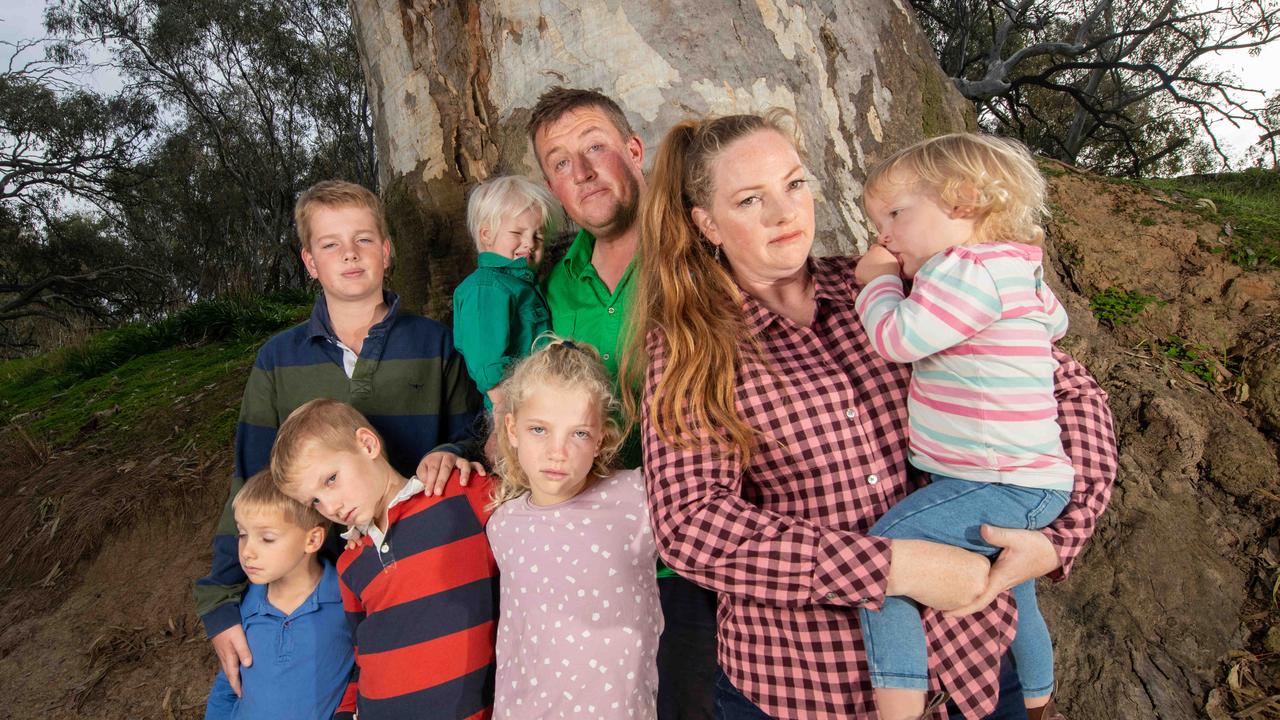Tears on Wall St, Aussie dollar in oblivion
Almost everyone in Australia is checking their super balances with nervousness this morning — as a global meltdown accelerated overnight.
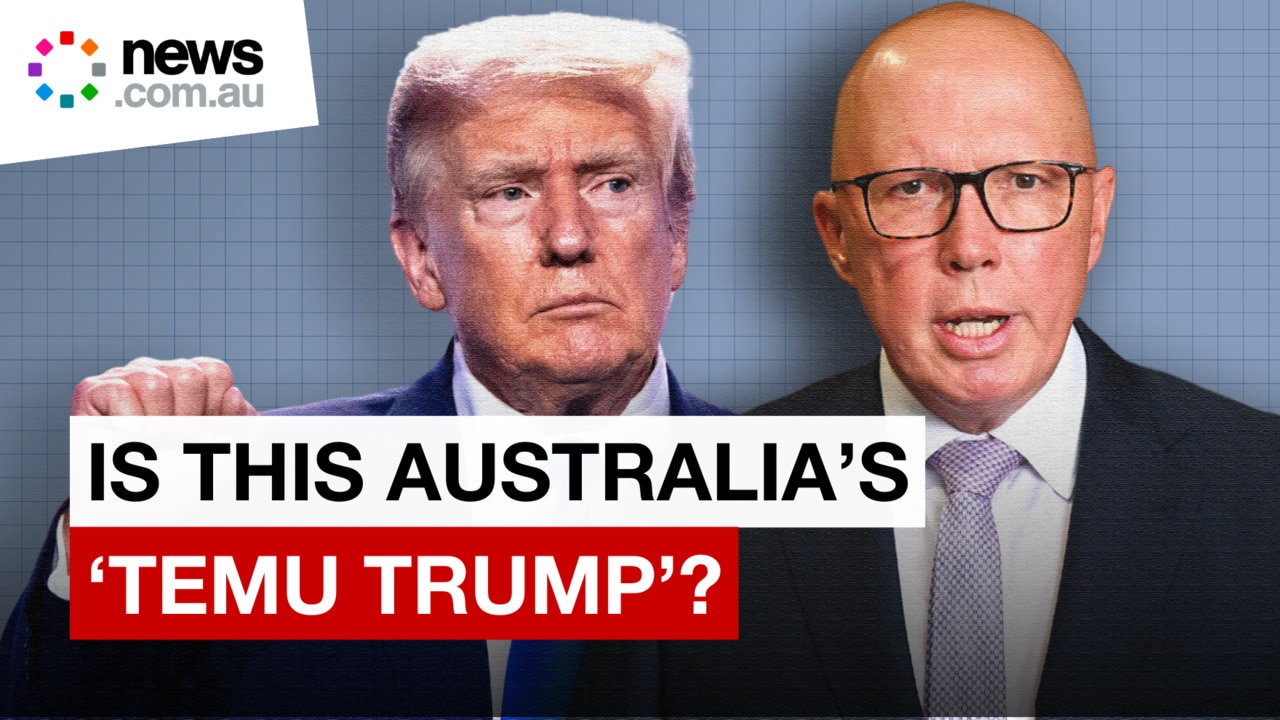
News
Don't miss out on the headlines from News. Followed categories will be added to My News.
There were tears on Wall St as the US stock market sank by a staggering six per cent overnight after a horror session on Thursday, which has resulted in the nation’s top 500 companies losing 11 per cent in the past two days alone.
It’s by far the biggest sell-off since the height of the pandemic and Aussie stocks are poised to drop a massive 4.29 per cent on Monday too.

The Australian dollar has been obliterated — almost falling below US60c overnight. That's a five-year low for the currency.
The trade war heated up overnight as China retaliated with a range of tariff and non-tariff measures in response to Donald Trump’s policies.
Mr Trump immediately slammed China and vowed he would never change his economic course. He also said in separate posts that “only the weak will fail” and that “this is a great time to get rich, richer than ever before”.
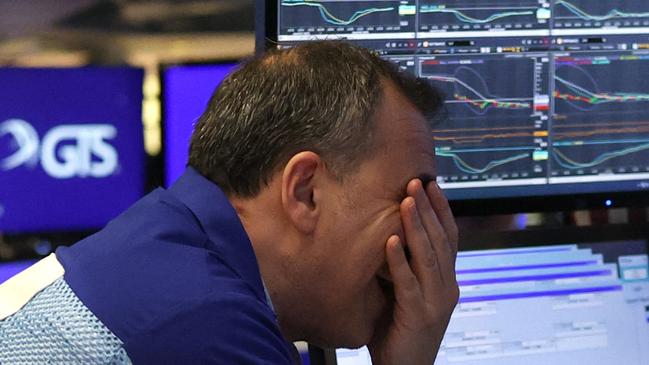
China bites back, trade war explodes
One reason for the global meltdown accelerating overnight is China's response to Mr Trump’s tariffs.
China said on Friday it would impose tariffs on all imports of US goods from April 10 after Washington imposed 34 per cent levies on Chinese products.
Beijing said the US tariffs were “typical unilateral bullying” behaviour.
“For all imported goods originating from the US, an additional tariff of 34 per cent on top of the current applicable tariff rate will be imposed,” Beijing’s finance ministry said.
Beijing’s Commerce Ministry also imposed export controls on seven rare earth elements, including gadolinium – commonly used in magnetic resonance imaging – and yttrium, which is used in consumer electronics.
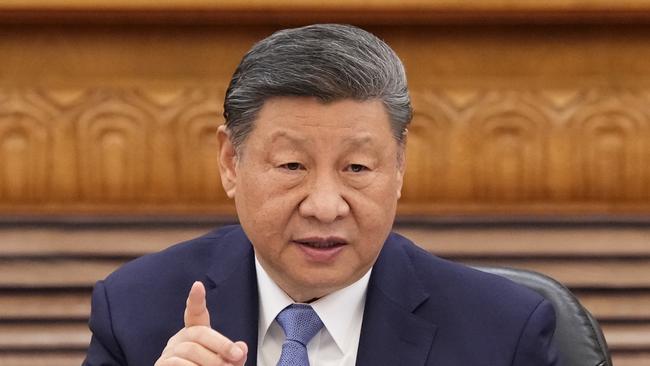
“It is a typical unilateral bullying practice that endangers the stability of the global economic and trade order. China firmly opposes this,” the ministry said.
China will also file a lawsuit with the World Trade Organisation (WTO) over tariffs, the ministry said.
Shortly after the news of Beijing’s retaliation, Mr Trump mocked China’s move on social media.
“China played it wrong, they panicked,” he wrote on social media.
“The one thing they cannot afford to do!”
But it seems China isn’t the one panicking at the moment, it’s nervous investors hitting the sell button.
“We’ve essentially got an escalating trade war,” said Jack Ablin of Cresset Capital. “We’re at the beginning of a global slowdown if these tariffs remain in place.”
Markets also appear to be spooked by comments made by US Federal Reserve Chair Jerome Powell overnight.
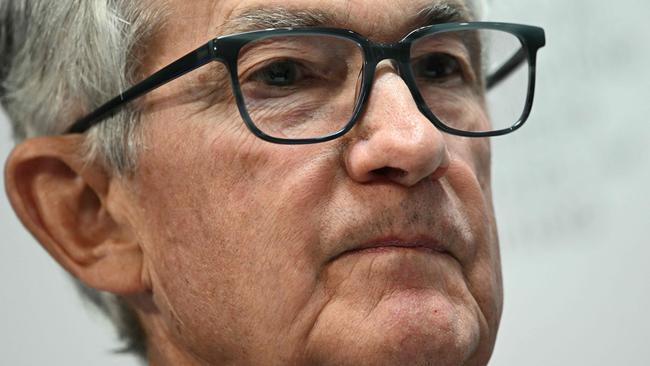
He said Mr Trump’s tariffs risk higher unemployment and will likely cause inflation to rise and growth to slow.
“It is now becoming clear that the tariff increases will be significantly larger than expected,” Mr Powell told an event in Virginia.
“The same is likely to be true of the economic effects, which will include higher inflation and slower growth,” he said, adding that it was “too soon” to consider making changes to US monetary policy.
Aussies to get four rate cuts
Back here in Australia, markets are increasingly confident the RBA will cut the cash rate in May and up to another three times after that, as economists say Mr Trump’s tariffs will cause a global slowdown that will spill over to the Australian economy.
AMP chief economist Shane Oliver said the tariffs were worse than markets expected. For Australia, the new trade barriers were more likely to cause growth to slow than for inflation to rise, adding to the case for more RBA interest rate cuts, he said.
“Given the even bigger threat to global growth, it looks like sharemarkets will have a further leg down,” Oliver said.
“Our assessment remains that shares will have a 15 per cent plus correction measured from this year’s high … and eventually the Fed will likely respond with rate cuts, although this may be delayed given US tariffs will also add to US inflation.”
Wall St meltdown
Wall Street stocks suffered another bruising sell-off on Friday as major indices slumped more than five per cent following Mr Trump’s aggressive tariff policies.
US equities spent the entire session in the red, shrugging off solid employment figures and fixating on China’s quick retaliation against the US levies.
The broadbased S&P 500 led the major indices lower, ending at 5,074.08, down 6.0 per cent for the day and more than nine per cent for the week.
The tech-rich Nasdaq Composite Index slumped 5.8 per cent to 15,587.79, placing it in a bear market, defined as a 20 per cent fall from a recent high.
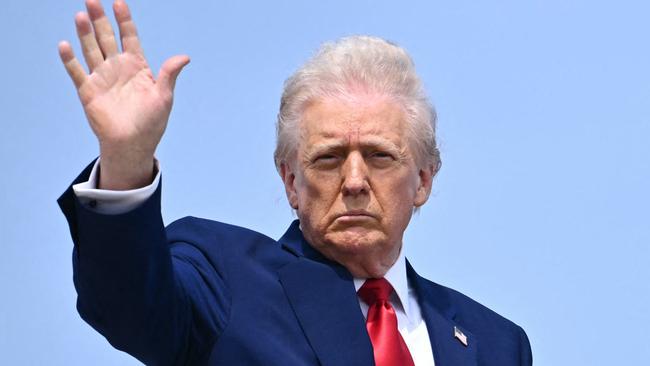
The Dow Jones Industrial Average tumbled 5.5 per cent to 38,314.86, its first close under 40,000 points since August.
The losses increased somewhat following remarks from Federal Reserve Chair Jerome Powell, who warned of the risk of higher unemployment and higher inflation due to tariff increases he characterised as “significantly larger than expected.”
Earlier, government data showed the US economy added 228,000 jobs last month, much more than analysts anticipated.
All 11 sectors of the S&P 500 fell while the Dow index was overwhelmingly a sea of red, with Apple falling 7.3 per cent, Chevron 8.2 per cent and Boeing 9.5 per cent.
But there were a few equities that rebounded.
Nike and Lululemon Athletica rose three per cent or more after Trump spoke optimistically about trade talks with Vietnam, from which both companies import apparel. Clothing importers had been among the most hard-hit sectors on Thursday.
Home builders were another bright spot in light of falling mortgage rates as markets bet on easing monetary policy. Lennar rose 2.4 per cent, while KB Home tacked on 3.5 per cent.
Originally published as Tears on Wall St, Aussie dollar in oblivion





